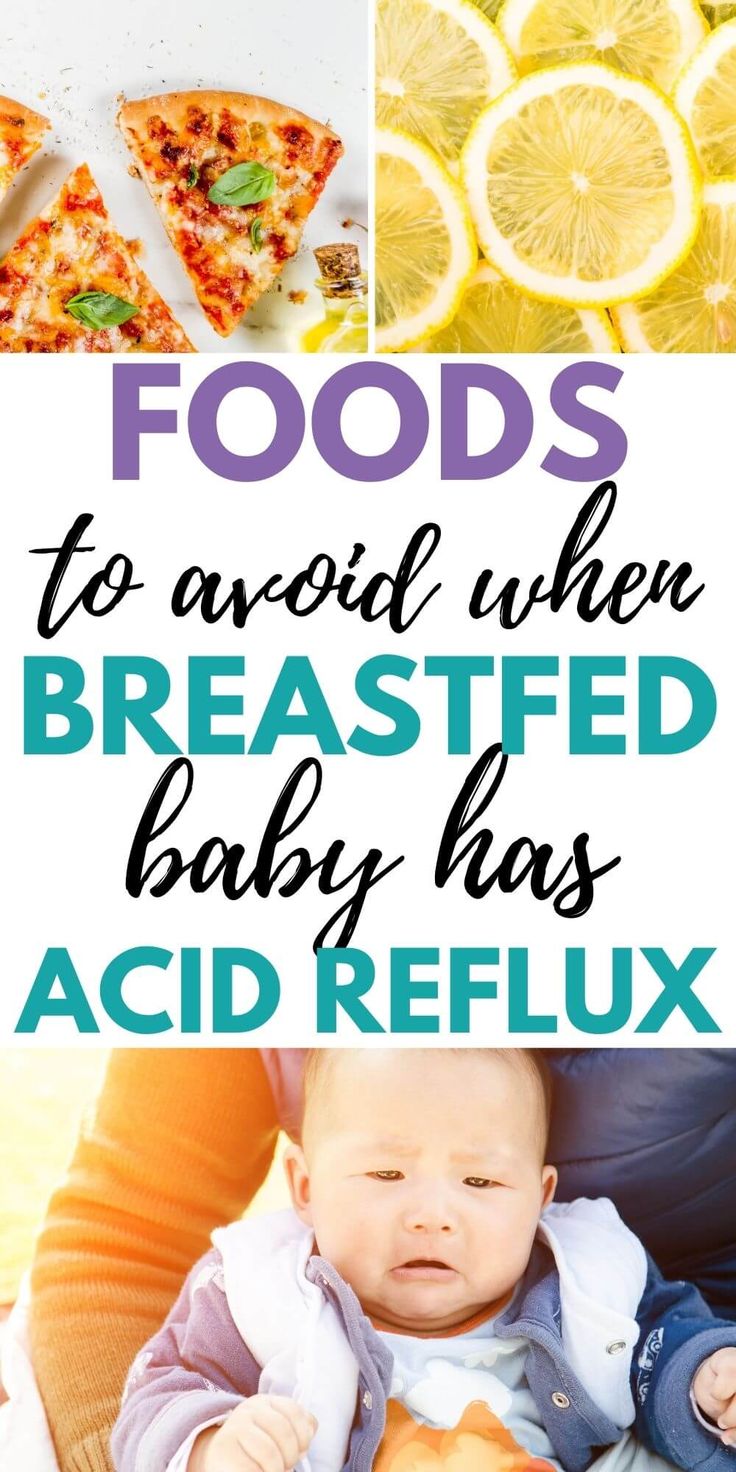The Impact of Diet on Acid Reflux in Breastfed Babies: What Foods to Watch Out For
Introduction
Breastfeeding is an essential period in an infant's life when they are exposed to the exclusive nutrients from the mother. However, several new mothers notice symptoms of acid reflux in their breastfed babies. Does the mother's diet influence this? What foods can cause acid reflux in breastfed babies? This article provides a comprehensive analysis of these questions and offers practical strategies for nursing mothers.
Understanding Acid Reflux in Breastfed Babies
What Indications Point Toward Acid Reflux in Infants?
Acid reflux, medically known as gastroesophageal reflux disease (GERD), in breastfed babies can exhibit through several symptoms. Increasingly present in infants, acid reflux becomes a matter of concern when it starts interfering with a baby's growth, when there's recurrent respiratory or ear infections or if it causes discomfort and pain. Bear in mind that the manifestation of these symptoms may vary in intensity from baby to baby. Following are the key symptoms that indicate acid reflux in infants:
- Frequent Vomiting:
Regular, recurrent episodes of vomiting often follow their feeding times.
- Hesitance During Feeding:
Your baby may exhibit distress, discomfort or show a clear unwillingness during breastfeeding times.
- Chronic Coughing or Wheezing:
A persistent cough or wheezing, especially post feeding, may point towards reflux.
- Difficulty in Swallowing:
Observe if your baby appears to struggle with swallowing during and after feeds.
- Refusal to Feed:
A firm reluctance to consume food or refusal to nurse can be triggered by the discomfort of acid reflux.
- Unusual Cry:
An abnormal or unusually high-pitched cry could be due to the pain caused by acid reflux.
- Stunted Weight Gain:
A clear lack of weight gain or slow growth could point to chronic reflux.
- Blood or Green/Yellow Fluid in Vomit:
This alarming symptom calls for immediate medical attention as it indicates severe reflux.
It's essential for parents to note these symptoms and seek professional medical advice if their baby exhibits many of these signs regularly. Early diagnosis can help manage and alleviate the discomfort caused by GERD effectively.
How Maternal Food Choices Influence Acid Reflux in Babies
Uncovering the Connection between a Mother's Dietary Choices and Acid Reflux in Infants
Recent studies on lactating mothers highlight the existence of a major link between what a mother consumes and the possibility of triggering acid reflux in her child. The most significant correlation is associated with the intake of food items that cause the mother's breast milk to increase in viscosity, posing challenges for the infant during digestion.
As the mother consumes food, it passes into her bloodstream and influences the composition of her breast milk. Certain substances found in specific food items might intensify the baby's vulnerability to acid reflux. Consequently, the mother's diet can profoundly impact the baby's digestive health.
To portray this connection clearly, consider the following findings:
- A review in the Journal of Paediatrics & Child Health reported that approximately 64% of breastfed babies with identified food allergies had adverse reactions due to their mother's consumption of allergenic foods.
- According to the American Academy of Pediatrics, certain proteins in cow's milk can easily cross into human milk, causing reflux symptoms in around 20% of breastfed babies.
Thus, the empirical evidence confirming this direct relationship augments the need for conscious dietary decisions by a nursing mother for the prevention and mitigation of acid reflux symptoms in her baby.
In conclusion, maternal dietary habits play a pivotal role in influencing the occurrence of acid reflux symptoms in their babies. It is vital, therefore, for a breastfeeding mother to watch her diet and consciously avoid specific trigger foods. Such careful consideration and balance in maternal nutrition is a tangible solution for managing acid reflux in breastfed babies.
Identified Foods That Could Cause Acid Reflux in Breastfed Babies
What foods should nursing mothers avoid due to their potential to trigger acid reflux in infants?
While it’s important to understand that triggers can vary between infants, certain elements of a nursing mother's diet have been commonly linked with causing acid reflux in babies. Here is a list of specific foods and food groups which could prove problematic:
1. Citrus Fruits: High in acid, fruits such as lemons, oranges, grapefruits, and limes are known to exacerbate reflux symptoms.
2. Tomatoes: This includes not just the fruit itself but also products made from tomatoes like sauces, soups and ketchups.
3. Fatty Foods: Foods high in fat, such as fried food, butter, and certain types of dairy products may cause the mother's breast milk to thicken, making it hard for the baby to digest and elevating the risk of reflux.
4. Caffeinated Beverages: Coffee, certain types of tea, and energy drinks fall into this category and are best avoided or at least limited in consumption.
5. Peppermint: While it may be soothing for adults with heartburn, it could have the opposite effect on infants.
6. Spicy Foods: Curries and other hot dishes can exacerbate acid reflux in babies.
7. Onions and Garlic: These pungent foods can aggravate stomach acid in babies, leading to reflux.
8. Chocolate: This may be surprising, but chocolate can also provoke reflux symptoms in breastfed babies.
Recognizing these potential triggers is the first step towards curbing acid reflux in breastfed babies. By either avoiding or limiting the consumption of these food items, nursing mothers can take proactive steps towards protecting their infants from acid reflux.
Healthy Dietary Modifications for Nursing Mothers to Prevent Acid Reflux
What dietary amendments can be made by lactating mothers to alleviate their infant's acid reflux?
Making specific dietary changes can remarkably help nursing mothers in preventing acid reflux in their babies. Here are a few suggestions:
- Limiting Foods That Trigger Acid Reflux: Mothers should identify and decrease the consumption of foods that might cause acid reflux in their infants. High fat foods, spicy foods, citrus fruits, onions, garlic, and caffeine are commonly known trigger foods. It's important to remember that triggers can differ considerably from one infant to another.
- Staying Adequately Hydrated: Drinking plenty of fluids can help in digestion and keep acid reflux at bay. Mothers should aim to drink at least eight glasses of water daily while breastfeeding.
- Eating Small and Frequent Meals: Consuming smaller meals more frequently rather than large meals can minimize the build-up of stomach acid, thus reducing the chances of acid reflux in babies.
- Including Alkaline Foods in Diet: Foods with higher alkalinity such as spinach, bananas, beans, melon, nuts, and seeds are beneficial as they can neutralize stomach acid. Incorporating these alkaline foods in their diet can enable mothers to manage acid reflux symptoms in their babies.
With these modifications, nursing mothers can effectively curb acid reflux in their infants. Remember, the impact of these dietary amendments can vary from baby to baby, so it's essential to monitor the infant's reaction and make continuous adjustments if necessary.
Helpful Strategies to Soothe and Limit Acid Reflux in Breastfed Babies
What remedies and practices can alleviate acid reflux in babies?
In addition to modifying dietary habits, parents can incorporate several practical approaches to limit and manage acid reflux in their breastfed infants. Here are some of them:
1. Proper Positioning For Feeding: Feeding the infant in an upright position can help prevent the food from flowing back into the esophagus, thus reducing the chances of reflux.

2. Smaller, More Frequent Meals: Overfeeding can overwhelm an infant's digestive system, causing reflux. It's advisable to opt for smaller portions at a more frequent rate.
3. Pacifying after Feeding: Ensuring the infant stays calm, quiet, and in an upright position for around 30 minutes post-feeding can minimize reflux incidences.
4. Use of Medication: Certain medications like antacids can alleviate acid reflux in babies. However, any kind of medication should always be administered under the supervision of a pediatrician.
5. Incorporation of Probiotics: Probiotic supplements for infants can promote healthy digestion and potentially reduce reflux. Again, any supplements should be endorsed by a healthcare provider.
In conclusion, these strategies, along with dietary changes of nursing mothers, can effectively manage and reduce incidence of acid reflux in breastfed babies.
Conclusion
A mother's diet can significantly impact a baby's digestive health, including acid reflux. Nursing mothers should, therefore, be mindful of their diet and avoid certain trigger foods to prevent aggravating their baby's acid reflux. Coupled with the right feeding strategies, these efforts can significantly help in managing acid reflux in breastfed babies.
Related FAQs about what foods can cause acid reflux in breastfed babies
Can a baby develop acid reflux solely based on the mother's diet?
While a mother's diet does influence the potential for acid reflux in babies, it's not the sole determining factor. Other influences like genetic tendencies, the baby's posture during feeding, and overeating can also contribute to acid reflux.

Is it necessary for a nursing mother to completely eliminate trigger foods from her diet?
Elimination is not always necessary but reducing intake of trigger foods is advisable. The reaction to certain foods can vary with different babies. A dietary modification aligned with a doctor's advice can help manage the baby's acid reflux symptoms.
How long does it take for dietary changes in a mother’s diet to affect the baby's acid reflux?
The time varies for different people. However, some mothers notice improvement in babies' symptoms within 2-4 weeks. Always consult with a healthcare provider before making major dietary changes.


